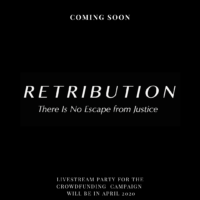
I decided I wanted to be a writer at a young age. I started reading and just new that’s something I had to do. I wrote children’s books then graduated to short stories as I got older and decided I wanted to write murder mysteries. By the time I got to high school I had gone from wanting to be an author to being a filmmaker. So I went to film school and learned everything about writing film scripts.
Later when I decided to write a fantasy novel, I realized just how different books and films were. In screenwriting you are taught to be brief with the descriptions. Don’t get hung up on how a character physically looks. You’ll never know who will get cast for the role. Instead of describing the color of their hair or the build of their body, you should focus on describing their personality. How does this character come off? Cheerful? Bubbly? Stoic? You are supposed to describe the character in a way that tells the actor how they should be played. You are also supposed to be brief in the descriptions of locations. Give the reader a sense of where things are, but don’t get bogged down in the details, unless it’s important to the story. Your locations can change due to the budget, so don’t get attached.
Editorializing was also a no no. Don’t write down what’s going on inside the character’s head. If there isn’t any voice over narration, you’ll never be able to know. If it can’t be visualized, it shouldn’t be written. Frankly, I don’t like voice over narration. I think it’s lazy writing. It may take a while to figure out how to get your information across visually, but it is always better in the end. The one exception is when the narration is commentary on what is happening, rather than telling important plot points of the story. A good example of commentary is Carrie’s voiceover on Sex and the City. Sometimes she gave plot points, but mostly it was commentary on the common theme of the episode. Another good example of this are early episodes of Grey’s Anatomy. Meredith had a voiceover at the beginning and the end of the episode. At the beginning, she introduced the theme of the episode. At the end, she summed it up.
So with screenwriting I had to learn how to say a lot with a little. I had to show and not tell. There are many similarities when it comes to novel writing. The narrative structure is about the same and you should definitely continue to show and not tell. But that is done in a different way with novels. Showing and not telling means, showing an encounter a character has rather than having that character talk about it after the fact. And novels are all about descriptions. Both physical and personality. Editorializing is not only okay, it’s almost alien if it doesn’t exist.
The first draft of my novel was very barebones. I was pretty much writing the plot with some internal thoughts thrown in. It was a totally new experience and just writing what was going on inside of the character’s head was revolutionary to me. It wasn’t until I gave it to a friend to read that I realized just how bare it was. I was writing a fantasy and he wanted to have more of my fantasy world described to him. He wanted me to slow down in some parts and take the time to describe everything around me so that he could get a better feel for the world. In writing the second draft, I had to stop every time I encountered a new scene to describe it. I would close my eyes and visualize it. Then I would describe everything I see. I hope it was good enough, I’m waiting for more feedback before I hand it over to an editor to get notes.




